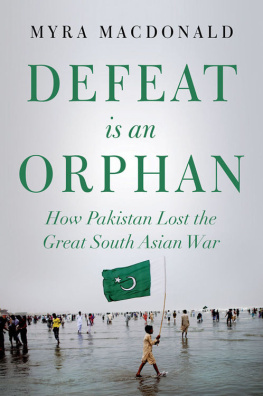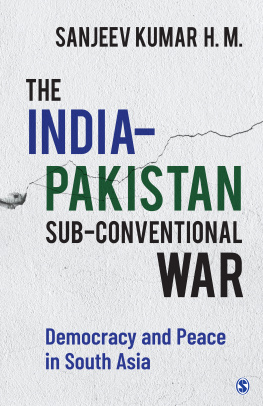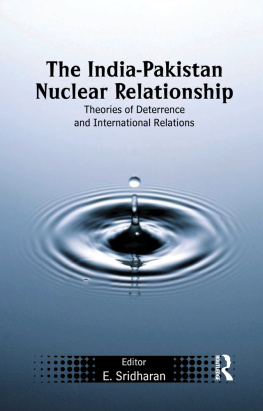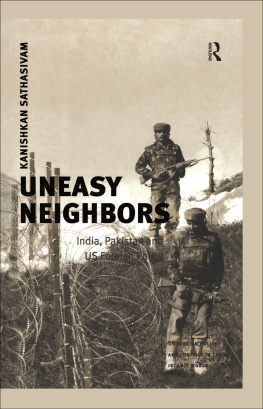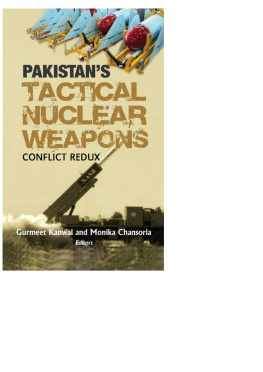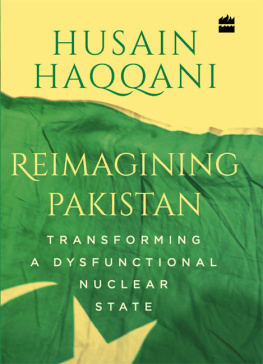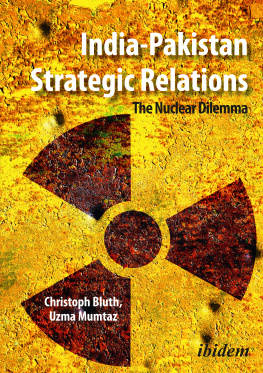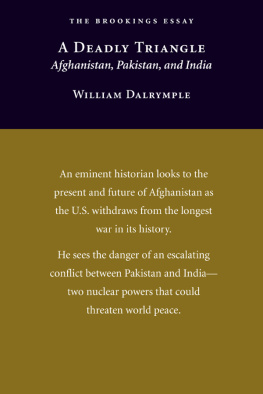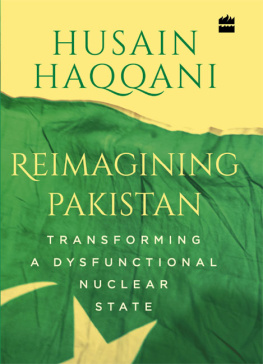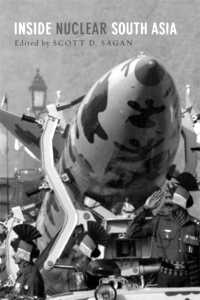DEFEAT IS AN ORPHAN
MYRA MACDONALD
Defeat is an Orphan
How Pakistan Lost the Great South Asian War

HURST & COMPANY, LONDON
First published in the United Kingdom in 2016 by
C. Hurst & Co. (Publishers) Ltd.,
41 Great Russell Street, London, WC1B 3PL
Myra MacDonald, 2017
All rights reserved.
Printed in the United Kingdom
The right of Myra MacDonald to be identified as the author of this publication is asserted by her in accordance with the Copyright, Designs and Patents Act, 1988.
A Cataloguing-in-Publication data record for this book is available from the British Library.
ISBNs: 9781849046411 hardback
eISBNs: 9781849048590
This book is printed using paper from registered sustainable and managed sources.
www.hurstpublishers.com
For Hannah
CONTENTS
Having first arrived in Delhi as Bureau Chief of Reuters in March 2000, this book is the product of so many years of engagement with India and Pakistan that it is impossible for me to acknowledge individually everyone who contributed. First and foremost then, I would like to thank the many people from India and Pakistan, and from Jammu and Kashmir, who helped over the years. In the period since I began covering the region, India and Pakistan came close to war on at least one occasion, and tantalisingly near to a peace agreement on Kashmir on another. By the second decade of the 21st century, peace remained as elusive as ever, and the chances of a settlement on Kashmir had become vanishingly small. The most striking change, though, was that India had emerged as a rising power while Pakistan floundered. After leaving Reuters, I decided to go back over recent history, much of which I had covered myself as a journalist. My aim was to review what had happened without the pressure of daily news, pulling at the threads that are often overlooked in the urgency of the moment. Defeat is an Orphan is the product of multiple viewpoints gathered from around the region and around the world, in part during my years as a reporter, in part more recently. This included interviews with both serving and retired officials on both sides of the border.
My particular thanks are owed to Shashank Joshi for reading an early draft and providing an essential critique of its content and structure. Fiona Leney edited a later draft with professional ruthlessness. Siddiq Wahid in Srinagar has been particularly helpful on the history of Jammu and Kashmir and a long-standing source of inspiration. Liz Harris provided insight on the situation in the Kashmir Valley. Zalan Khan opened a window into the various perspectives of Pashtuns from Pakistans north-west. I should also thank Ayesha Siddiqa in Islamabad and Praveen Swami in Delhi. Among the many former colleagues at Reuters who helped me over the years, I should mention Sanjeev Miglani in Delhi, Zeeshan and Kamran Haider in Islamabad and Sheikh Mushtaq and Fayaz Kabli in Srinagar. Officials and former officials in London, Washington and Paris added their perspective. The vast majority of my interlocutors, however, were in South Asia. My thanks too to my publisher, Michael Dwyer, for taking on the idea and helping to refine it, and to all his colleagues at Hurst.
Finally, my daughter, Hannah, has shown remarkable fortitude since first being dragged out to India at the age of nine. Her sense of humour and joie de vivre have been a constant source of joy, all the more needed when writing about a conflict that often leaves little room for optimism.
I recognise that in such a polarised environment as exists in South Asia, my book, or elements of it, will be criticised in many different ways. I hope, however, that it contributes to further critical thinking, particularly on the vexed question of Jammu and Kashmir. I should add that all mistakes in Defeat is an Orphan are my own, as are the views expressed in it.
The Hijacking
Indian Airlines Flight IC-814 had just taken off from Kathmandu when the cabin crew began the scramble to serve the food and drinks. It took less than two hours to reach Delhi and the plane was full of first-time flyers anxious for their free whisky-and-soda or beer, an illicit pleasure on international flights since alcohol was banned on domestic routes. It was Christmas Eve 1999, the last month of the old millennium. Many passengers were returning from a brief holiday in Nepal. A few couples were coming back from their honeymoon. Others had been given a paid break by their employers as a reward for meeting sales targets. For many Indians, Kathmandu at the time was as exotic a place as they could afford. The seat of a crumbling royal dynasty, the splendour of its magnificent palaces and temples belied the desperate poverty of the countryside where a rural Maoist insurgency held sway. With its cheap hotels and basement casinos, it was also a perfect getaway for lower middle class Indians. It was one of the few places where the Indian rupee bought more than it did at home and where shops were stocked with consumer goods then still hard to find in India. This was the worlds only Hindu kingdom, a country frozen in time and trapped between Asian giants China and India. Like Vienna during the Cold War, Kathmandu teemed with political intrigue and the whisperings of intelligence officers. Indias external intelligence agency, the Research and Analysis Wing (R&AW), had a big presence, working to counter the influence of China. Pakistans Inter-Services Intelligence (ISI) agency, taking advantage of lax security along the long porous border between India and Nepal, worked out of Kathmandu too. It was a useful base to push jihadis, spies and counterfeit money into India. On the return flight, the passengers were celebrating a holiday well spent, their duty-free purchases crammed into the overhead lockers above. The plane was an old Airbus-300, relatively roomy even in economy class. Those in window seats could see the Himalaya disappearing into the dusk as the plane approached Indian airspace.
In the cockpit, Captain Devi Sharan was looking forward to time away in Sharjah with his wife and two daughters. This was his last day at work before the holiday and it had been frustratingly long. He had started early in the morning from Hyderabad in southern India. In Kathmandu he had been held up for hours waiting for permission to take off. Nepals Tribhuvan International Airport had been as chaotic as ever, with no sign of security. He had noticed that one woman who was meant to be looking at the monitor screen attached to the baggage X-ray machine was knitting a sweater. Now he was tired after his long day and glad to be heading for home. He asked senior flight purser Anil Sharma to bring him a cup of tea and set course for the Indian border. He began to relax and to chat, grumbling about the late take-off. He had 178 passengers on board along with eight cabin crew and the three flight crew.
In seat 1B, at the front of Business or J-Class, was passenger Romi Grover. Unlike most of the other passengers, he was a regular visitor to Nepal for his companys import-export business. He had been lucky to get on the plane. At Kathmandu he had been running late and might have missed the flight had it not been delayed. The airport that day had been at its absolute, absolute worst, he recalled. I walked into the airport with my boarding pass, went through immigration and security in less than five minutes. Officials were not interested in anything. He eased off his shoes and began his meal.

